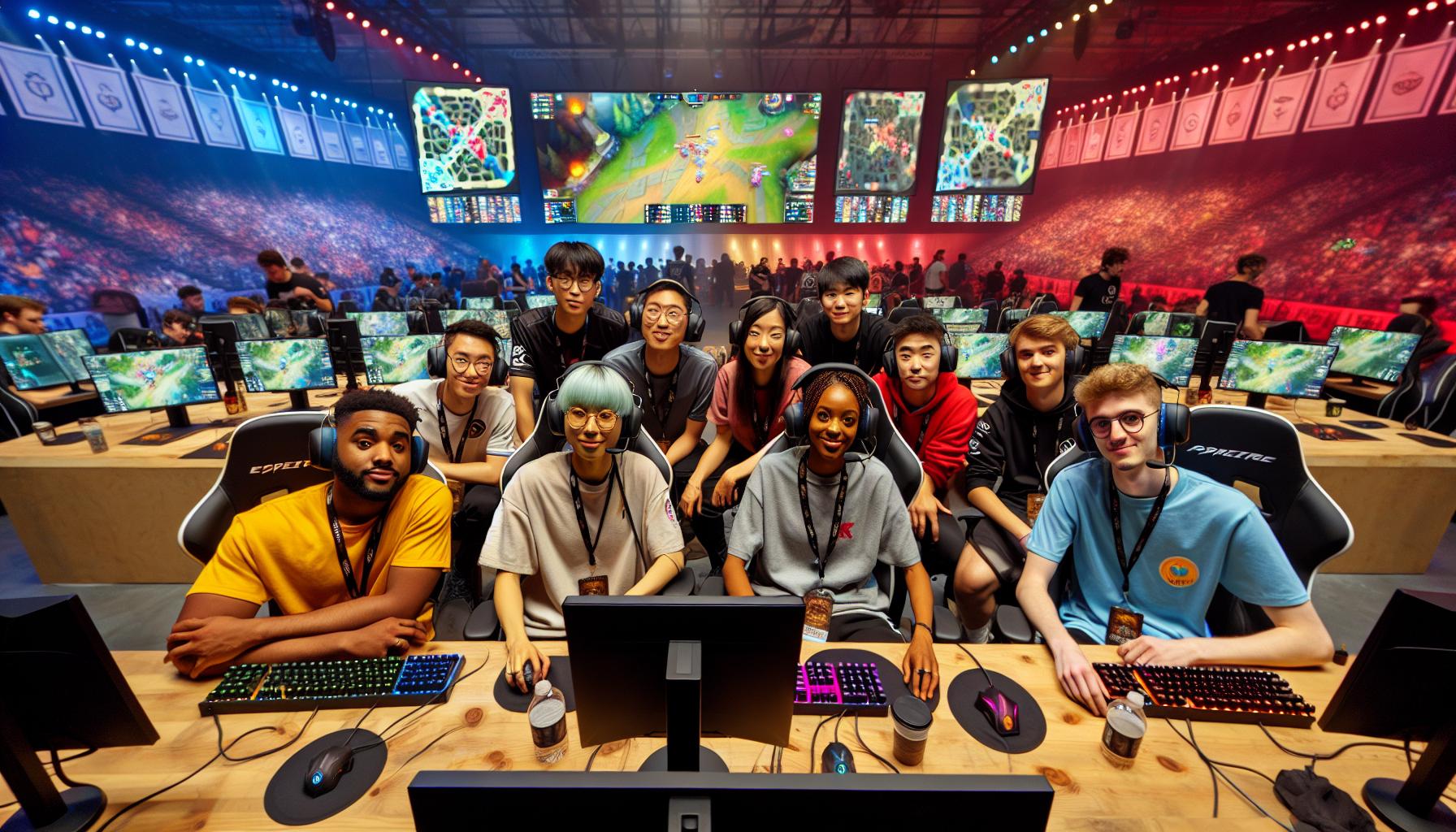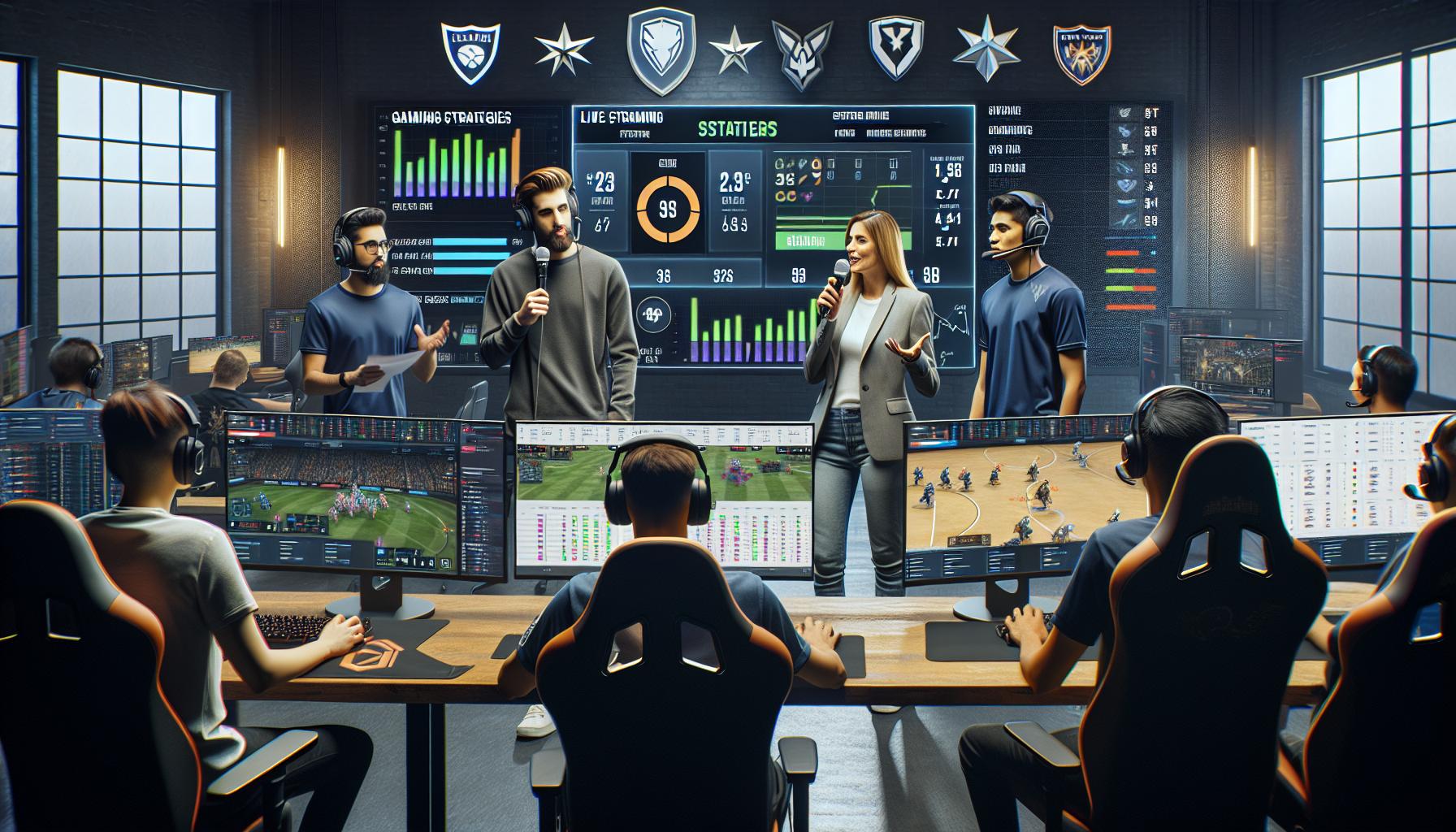
In a world where gaming has transformed from a basement pastime to a billion-dollar industry, esports and gaming management have emerged as the unsung heroes behind the scenes. These savvy professionals juggle everything from team dynamics to sponsorship deals, all while trying to keep their players from getting too cozy on the couch. Who knew that managing a group of highly competitive gamers could be as tricky as herding cats—if those cats had headsets and a penchant for late-night snack runs?
Esports and Gaming Management
Esports and gaming management represents a specialized sector within the broader gaming industry. This discipline encompasses a variety of functions aimed at organizing, promoting, and supporting competitive gaming events. Professionals in this field play a pivotal role in shaping the success of esports teams and tournaments.
Managing teams involves coordinating practice schedules, analyzing performance data, and fostering a positive team culture. Effective communication with players and coaching staff enhances collaboration and builds trust. Sponsorship acquisition stands as another vital responsibility, as securing financial backing sustains team operations and enhances brand visibility.
Event organization requires meticulous planning. Venue selection, logistics management, and audience engagement contribute to an unforgettable experience for attendees and viewers. Professionals understand the importance of marketing and promotion in driving attendance and creating buzz for gaming events.
Additionally, an awareness of industry trends is essential. Keeping abreast of emerging games, technologies, and audience preferences ensures relevance in a rapidly changing market. Each of these components helps build a competitive advantage for teams and sponsors alike.
Data analytics provides insights into player performance and fan engagement. Utilizing tools to analyze metrics allows for informed decision-making. Engaging with fan communities further strengthens loyalty and enhances team branding.
Balancing these responsibilities demonstrates the complexity of esports and gaming management. These professionals navigate challenges with strategic foresight and adaptability. Emphasizing teamwork, creativity, and industry knowledge leads to the success of both teams and events in the competitive landscape of esports.
Key Components of Esports Management

Esports management encompasses several critical elements, each contributing to the overall success of gaming teams and events.
Team Management
Team management involves overseeing player dynamics and fostering a positive environment. Establishing clear communication ensures players remain motivated and focused. Monitoring performance metrics provides insights into individual and team strengths. Creating practice schedules encourages collaboration and skill development. Handling conflicts proactively maintains group cohesion. Building trust among team members enhances overall performance and resilience during competitions.
Event Management
Event management requires meticulous planning and execution. Selecting suitable venues significantly impacts the event experience for both players and fans. Organizing logistics, such as travel and accommodations, streamlines operations for participants. Engaging the audience through interactive activities boosts attendance and enjoyment. Promoting events across various platforms increases visibility and attracts sponsors. Staying adaptable during events allows for quick responses to unexpected changes, ensuring a smooth experience for all involved.
Role of Technology in Gaming Management

Technology plays a vital role in gaming management, significantly impacting how professionals operate within the industry. From streaming platforms to data analytics, these tools enhance engagement and performance.
Streaming Platforms
Streaming platforms serve as primary venues for showcasing esports events. Twitch, YouTube Gaming, and Facebook Gaming attract millions of viewers, creating opportunities for monetization through subscriptions and sponsorships. These platforms enable gamers to build personal brands, interact with fans in real-time, and provide content that resonates with audiences. Professionals leverage built-in tools for chat moderation, user engagement, and predictive analytics to refine their strategies. Effective use of streaming services amplifies reach and creates dynamic experiences for audiences and sponsors alike.
Data Analytics
Data analytics transforms decision-making in gaming management. Gathering and analyzing performance metrics allows teams to identify strengths and weaknesses. Platforms like Mobalytics and Gamer Sensei provide insights into player behavior, helping coaches develop tailored training regimens. Measuring in-game statistics alongside historical performance informs strategies for future competitions. Effective data utilization leads to informed adjustments in gameplay and team dynamics, optimizing player roles during tournaments. Analytics also enhance sponsorship opportunities by providing concrete data on audience engagement and ROI for brands involved in esports.
Career Opportunities in Esports and Gaming

The esports and gaming industry presents numerous career paths for individuals passionate about competitive gaming and management. Opportunities range across various roles, each playing a significant part in shaping the future of this dynamic industry.
Job Roles
Numerous job roles exist within esports and gaming management. Team manager positions focus on player dynamics and logistics, maintaining organization within teams. Event coordinators plan and execute tournaments, ensuring engaging experiences for fans and participants alike. Marketing specialists enhance visibility for teams and events through targeted campaigns and social media engagement. Data analysts extract and interpret performance metrics, guiding strategic decisions for teams. Sponsorship managers cultivate relationships with brands, securing partnerships vital for team sustainability and growth.
Required Skills
Essential skills define success in esports and gaming management. Effective communication strengthens team cohesion and enhances collaboration among members. Strong organizational skills are crucial for planning events and managing day-to-day operations. Analytical thinking enables professionals to interpret data effectively, making informed decisions based on performance insights. Adaptability plays a key role, allowing individuals to respond quickly to changes in the fast-paced gaming environment. Creativity fuels innovative marketing strategies, helping teams and events stand out in a competitive landscape.
Impact of Esports on Traditional Sports
Esports increasingly influences traditional sports in various ways, altering perceptions and expanding audiences. For instance, it introduces younger demographics to competitive gaming, which generates interest in sports-themed video games. This crossover often leads to partnerships between esports organizations and traditional sports leagues, enhancing brand visibility.
Merchandise sales serve as another area where esports impacts traditional sports. Collaborations between popular game titles and sports teams create unique merchandise that appeals to fans of both realms. The merger of esports with live sports events further adds a layer of engagement, where fans enjoy dual experiences, whether through viewing platforms or event venues.
In addition, traditional sports franchises are adopting esports models to diversify their revenue streams. With the growing popularity of esports, teams like the Dallas Mavericks and PSG have established esports divisions. These initiatives enable sports organizations to tap into the lucrative esports market while engaging fans in innovative ways.
Moreover, traditional athletes now frequently invest in or participate in esports, further blurring the lines between the two fields. High-profile athletes, such as LeBron James and Steph Curry, publicly endorse competitive gaming, attracting mainstream media attention and legitimizing esports as a valid career path.
Audiences also welcome the integration of esports into traditional sports broadcasts. Networks like ESPN and FOX Sports feature esports tournaments alongside traditional sporting events, creating hybrid viewing experiences that cater to diverse viewer preferences. This strategy aids in capturing the attention of younger audiences who may not typically watch traditional sports.
Investment in esports infrastructure becomes increasingly common among traditional sports organizations. This investment fosters the creation of esports arenas and training facilities, providing gamers with resources typically reserved for elite athletes in traditional sports.
Focus on Adaptability And Strategic Thinking
The rapidly evolving landscape of esports and gaming management presents exciting opportunities for those willing to embrace its challenges. Professionals in this field not only manage teams and events but also play a crucial role in shaping the future of competitive gaming. As technology continues to advance and audiences expand, the demand for skilled managers will only grow.
With a focus on adaptability and strategic thinking, individuals can thrive in this dynamic environment. By fostering strong team dynamics and leveraging data analytics, they can drive success for their teams and organizations. As esports becomes increasingly integrated with traditional sports, the potential for career growth and innovation in gaming management is truly limitless.
